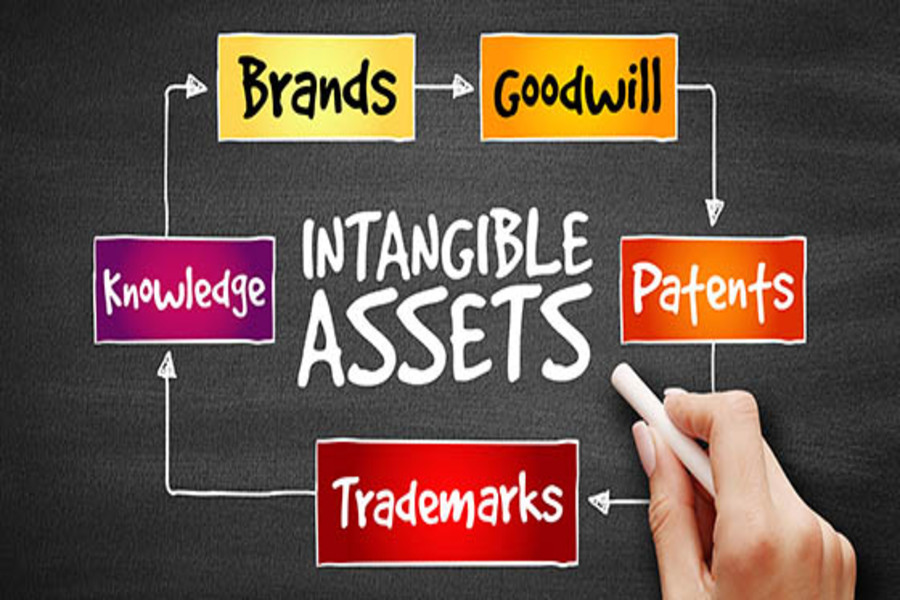U.S. commercial bankruptcies surged in 2023, as businesses across many industries struggle with rising costs, a tight labor market, lackluster demand, economic uncertainty and geopolitical risks. When valuing a distressed business, its value as a going concern might not necessarily be appropriate. Some situations call for liquidation value. Here’s how these premises of value differ and how valuators estimate liquidation value. The key differences The International Valuation Glossary — Business Valuation defines going-concern value as “a premise of value that assumes the business is an ongoing commercial enterprise with a reasonable expectation of future earning power.” Most business valuations focus on a business’s going-concern value. However, for businesses contemplating bankruptcy, liquidation value is another important benchmark. The glossary identifies two types of liquidation value: 1. In an orderly liquidation,...

A business may have more than one value, depending on the purpose of the business valuation and the characteristics of the ownership interest. Before an expert starts working on a business valuation, it’s important to discuss the appropriate level of value. Otherwise, confusion over levels of value may lead to miscommunication and misinformed business decisions. Moreover, when multiple experts calculate different levels of value, discrepancies and disputes abound. Here’s an overview of the three main levels of value. 1. Controlling interests Control value is one level. The ability to control a business’s decisions has impact on value, especially on the value of a closely held business. Potential buyers often may be willing to pay a premium for the ability to control business decisions. The key to arriving...
Buy-sell agreements are a critical tool for closely held businesses and professional practices. The valuation provisions of these agreements play a significant role when buyouts happen. Unfortunately, shareholders in a New York law firm recently learned a hard lesson: While a fixed-value provision has the benefit of simplicity, failure to tie that formula to the business’s current fair market value can prove costly. Lawyers sue In Laurilliard v. McNamee Lochner, P.C. (No. 904245-22, N.Y. Supr. Ct. June 29, 2023), a New York trial court forced two law firm shareholders, who had practiced with the firm for decades, to surrender their shares for only $100 each. The court denied the terminated shareholders’ claim, which alleged their old firm and nine of its shareholders had anticipatorily breached the shareholders’...
Transaction databases contain the details of thousands of real-life public and private stock sales. They’re used by business valuators when they apply the guideline transaction method. This method — also known as the merger and acquisition method — is a subset of the market approach. It derives a company’s value from prices paid for companies engaged in the same, or similar, lines of business. Selection criteria Valuators start this methodology by filtering transaction databases based on specific selection criteria. These parameters affect which transactions the valuator analyzes. A minor change in the selection criteria can have a major impact on value. The most obvious selection criterion is the subject company’s Standard Industrial Classification (SIC) or North American Industry Classification System (NAICS) code. But valuators also might set parameters...
The survival of many companies depends on relationships between key customers or vendors (or both). When one of these relationships is disrupted, for whatever the reason, one party may incur financial damage — perhaps even leading to its demise. And business valuation professionals often evaluate this lost value as a source of economic damages. Going, going, gone . . . In many cases, valuators will present a company’s alleged damages as lost past and/or future profits. For instance, if a vendor breaches a contract to sell materials at a contracted price, the business may be forced to pay a higher price to the vendor, assuming no immediate alternatives are available. If it takes six months to secure a new vendor at the originally contracted price, the company will...
An employee stock ownership plan (ESOP) can facilitate the transfer of a business to the owner’s children or employees over a period of years in a tax-advantaged way. However, the IRS recently issued a statement warning businesses about a range of compliance issues related to ESOPs and announcing plans to ramp up compliance enforcement. The IRS has identified numerous issues, such as improper valuation of employer stock, prohibited allocation of shares to disqualified persons and failure to follow tax law requirements for ESOP loans, causing the loans to be prohibited transactions. In light of this warning, business owners who are interested in pursuing an ESOP should seek the advice of business valuators and other professional advisors to ensure compliance with the rules. Here’s some critical information...
When preparing a business valuation, quantitative data — from tax returns, financial statements, contracts and other sources — is important. But there’s more to a company than numbers. Qualitative factors also contribute to a company’s overall value. It isn’t always easy, however, to gain insight into qualitative aspects of a business’s operations. Websites and marketing materials can provide only limited insight. So there’s almost no substitute for conducting a one-on-one interview with a company’s owner or management team. Answering key questions Depending on why a business valuation is being sought, your valuator will ask a variety of questions during the management interview. Among other things, interviews usually provide answers to the following key questions about a company’s operations and outlook: Does the company have adequate management depth? A company’s...
Reasonable compensation is an issue that comes into play in divorce, shareholder disputes and tax cases. It’s also a common financial statement adjustment that valuators make when valuing a business. Although experts are often hired to make the calculations, business owners and attorneys should understand how they do it. Multiple factors Valuators weigh a variety of factors when determining reasonable compensation for a specific business owner or executive, including: Role in the business. Many companies employ multiple executives, but they don’t all fill the same roles. Some are sales rainmakers, while others drive strategic direction or manage the day-to-day operations of the business. A valuator considers the experience and qualifications necessary to fill the individual’s specific job, as opposed to the qualifications the individual currently in the job...
Intangible assets — such as patents, copyrights, trademarks and customer lists — can have substantial value. But, unless they’re purchased from a third-party, you might not know what they’re currently worth. For example, if a business cultivates a well-known brand over several years using internal resources, it won’t appear on its balance sheet. Owners of intangibles need to know the value of these assets in various situations. For example, the value of intangible assets may be relevant when buying or selling a business, reporting acquired intangibles under U.S. Generally Accepted Accounting Principles (GAAP), licensing rights to or joint venturing with a third party, and litigating asset infringement or breach claims. The value of intangibles also can be important in matters such as divorce settlements and estate...
Most people equate business bankruptcy with liquidating a company’s assets and using the proceeds to repay creditors. That’s a Chapter 7 filing under the U.S. Bankruptcy Code, but closing shop isn’t a foregone conclusion in bankruptcy. Many companies instead file for Chapter 11 (reorganization) bankruptcy. This option allows a company to continue to operate, with the hope of turning things around. In the first half of 2023, both types of business bankruptcy filings surged in the United States. In particular, Chapter 11 filings were up 68% from the same period last year, according to Epiq Bankruptcy, a provider of bankruptcy statistics. This figure reflects only businesses involved in formal bankruptcy proceedings; many others are involved in informal, out-of-court reorganizations. Here are ways business valuation professionals can...











